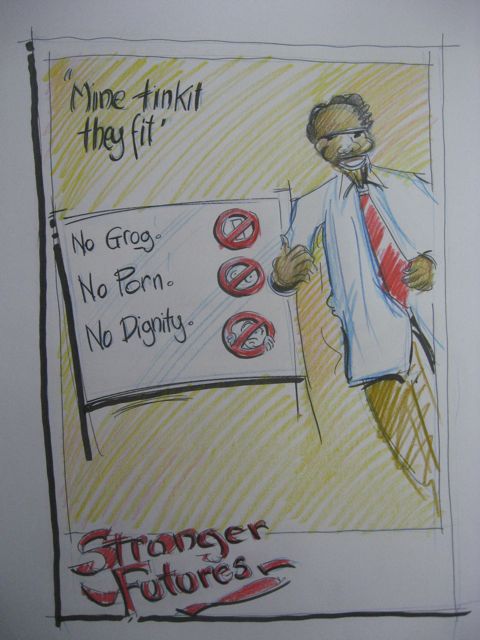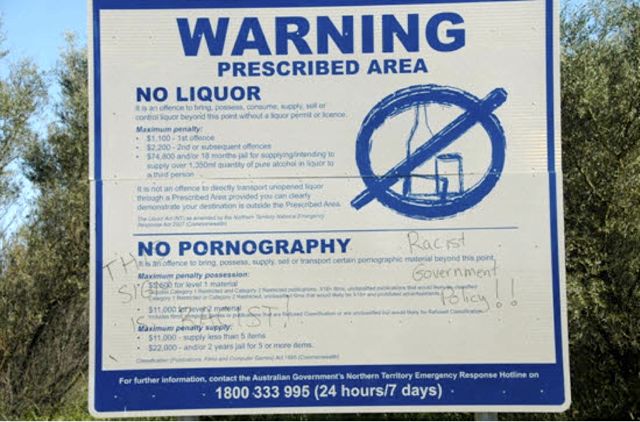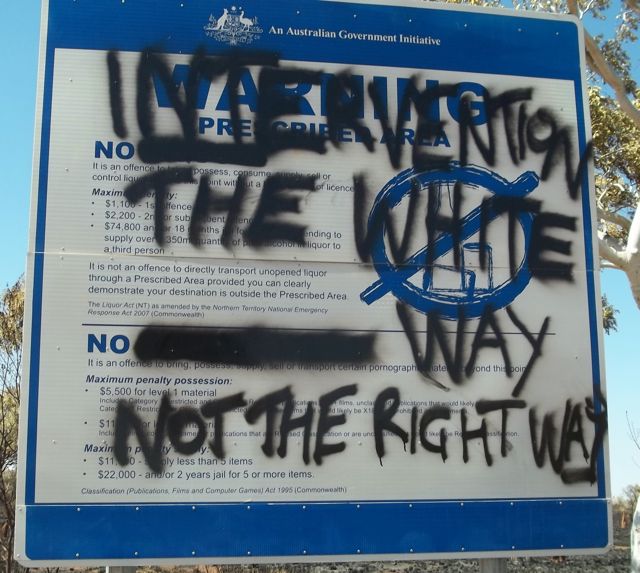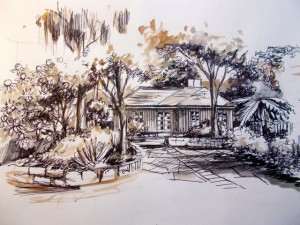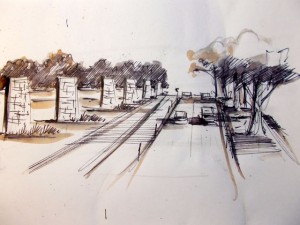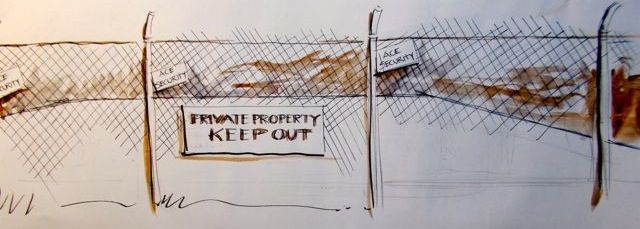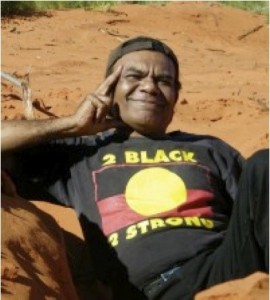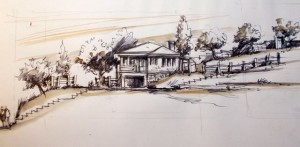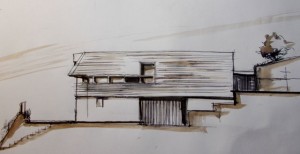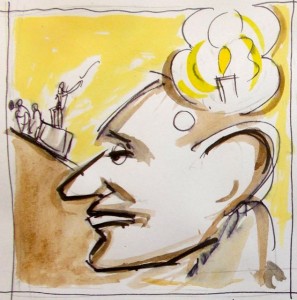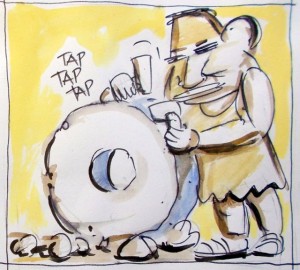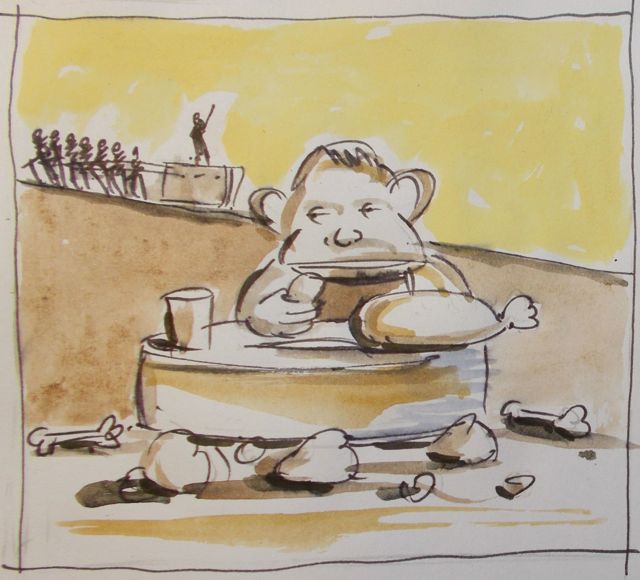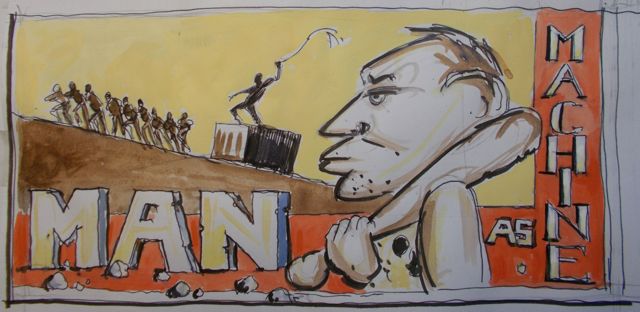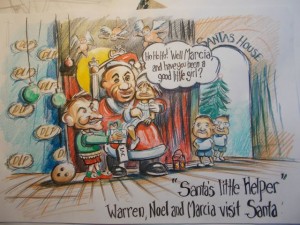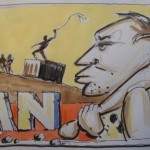Putin Versus Abbott
Report from The First Great Leadership Test, St Petersburg
by Quentin Cockburn, Sports Reporter
It has often been claimed that politicians are removed from the reality of contemporary life, they live in a bubble, are complacent and self interested. Not So! In this, the first of our gripping correspondents reports we give you the proceedings of the First Great Leadership Test. On the right, defending democracy and western values, our contender, the Rt Hon Tony Abbott. On the left, representing the forces of inscrutable orientalism, none other than the President of the Russian Federation, Vladimir Putin. We now cross live to Dimitri Katzenyammer and Grigori Walankoff at the ‘Peoples Make Fun SportsPalast’ in St Petersburg.
Grigori: Good evening Dimitri. Good evening listeners from around the world. We have much sense of anticipation for event, and today we see two equally matched contestants go head to head on field. The crowd is hush, and there, I can see him, in the corner emerges the defender of the west, The Rt Hon Tony Abbott.
Dimitri: And what a fine figure he is, flanked on either side by a colourfully garbed retinue of aides. What are they, Grigori’?.
Grigori: Could be military, police? (picks up binoculars) No they are carrying hoses, they are firemen!
Dimitri: Yes firemen, a brilliant tactical move, the siren is wailing now, the firemen are all prone, on the ground, what could this meaning? (pauses) Wait, there is activity within the glow of the cabin, the door is opening. (sound of thunderous applause) It is Mr Abbott. He emerges, and will uncoil the fire hose. He is running now. He stops. He smiles for the cameras, nice shot that, and will now run through the hoop of real fire. The crowd is standing to their feet. But he is not finished, what could this mean Grigori’?
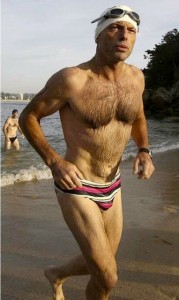 Grigori: I am puzzled Dimitri, he mysterious leader. He disrobing, in full view, this is audacious display of real leadership. He is twisting, yes he is making physical jerks, and now, he emerges, in bathing costume, in speedo, my notes tell me, and is running across the peoples sportspalast to adjacent swimming pool. He dives, he swims, count the laps, one, five, ten, fifteen, his stamina is endless. He leap from pool. He perform triple jump. Incredible! Mounts rostrum, stands to the Australian Anthem. Holds flag it has letters I can just read, say ‘D L P’. What is DLP Dimitri’? Superb performance! Judge give him 5.5 , 7 and 5.5. Worthy performance, but is it leadership performance?
Grigori: I am puzzled Dimitri, he mysterious leader. He disrobing, in full view, this is audacious display of real leadership. He is twisting, yes he is making physical jerks, and now, he emerges, in bathing costume, in speedo, my notes tell me, and is running across the peoples sportspalast to adjacent swimming pool. He dives, he swims, count the laps, one, five, ten, fifteen, his stamina is endless. He leap from pool. He perform triple jump. Incredible! Mounts rostrum, stands to the Australian Anthem. Holds flag it has letters I can just read, say ‘D L P’. What is DLP Dimitri’? Superb performance! Judge give him 5.5 , 7 and 5.5. Worthy performance, but is it leadership performance?
Dimitri: We must wait for that Grigori.
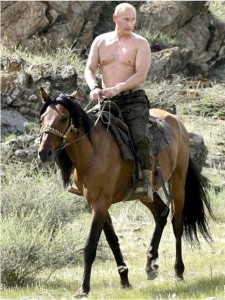 Grigori: Yes Dimitri, for here, (the stand shakes with violent applause), the hero of the East Vladimir himself, leaps from horse, wrestling with bear. Taking jacket off, what fine leadership torso. Kills bear bare handed. Leaps back on truck, picks up kalashnikov. Shoots cat. Silence. Sprays machine pistol bullets onto target, making words, I cannot read.
Grigori: Yes Dimitri, for here, (the stand shakes with violent applause), the hero of the East Vladimir himself, leaps from horse, wrestling with bear. Taking jacket off, what fine leadership torso. Kills bear bare handed. Leaps back on truck, picks up kalashnikov. Shoots cat. Silence. Sprays machine pistol bullets onto target, making words, I cannot read.
Dimitri: Grigori, I see with field glasses, words in bullet say, (breaks out into rapturous laughter, and wipes tears from eyes), Pussy Riot! Crowd go wild, and then, what is this Grigori? Hero leaps off truck onto oil rig, lassoos Greenpeace protester, turns to admiring crowd, another photo opportunity. Well done! Well done! And now, what is this? assembled journalists, walking past. 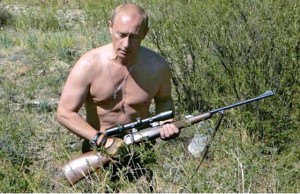 Hero glaring at them. Hero picks up umbrella, stabs journalist. Journalist dead. And what this? Giving coffee to other journalist, hair fall out, ha! Ha! Grigori, Old Polonium trick! Ha Ha, Hero have style, and jump to podium.
Hero glaring at them. Hero picks up umbrella, stabs journalist. Journalist dead. And what this? Giving coffee to other journalist, hair fall out, ha! Ha! Grigori, Old Polonium trick! Ha Ha, Hero have style, and jump to podium.
Great photo! Great leadership! Score, 6.5.7 and 8 he wins!
Thunderous applause.
Grigori: Mr Abbott will meet tomorrow for APEC shirt wearing event. New shirt, handshake and Indian wrestle. We barely wait! Such even matched contestant, skill, leadership and physical presence. Hmm… Dimitri, Bushfire must be very lucky to have him in Australia.

